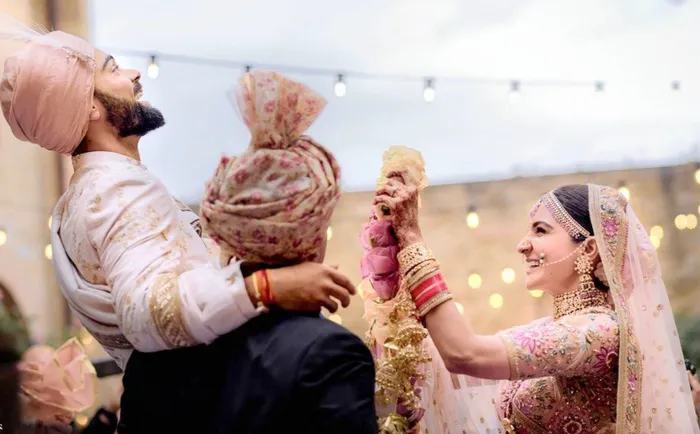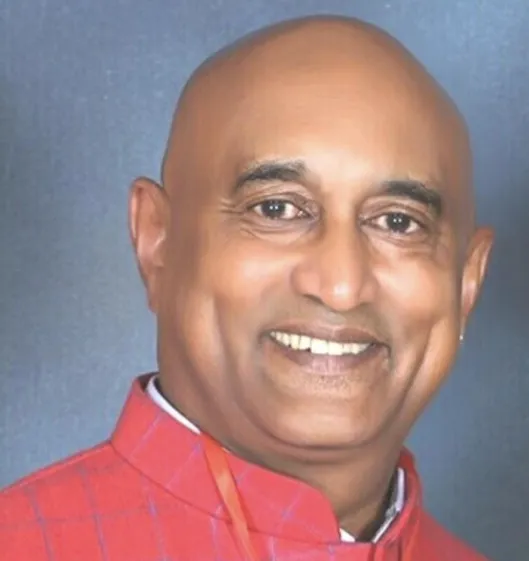The surname ruling: when law overlooks living tradition
'The law may give permission, but it cannot give blessing'

Indian cricket captain Virat Kohli and his wife, Bollywood actress Anushka Sharma, celebrated their wedding in a private ceremony
Image: SUPPLIED
WHEN the Constitutional Court recently ruled that a married man may legally assume his wife’s surname, it was hailed in some quarters as a victory for gender equality.
Yet, in communities deeply anchored in cultural and religious systems, the ruling has stirred unease.
Last week in Chatsworth, the Cultural, Religious and Linguistic Rights Commission (CRL Commission) convened a community dialogue with religious and cultural leaders as part of a nation-wide engagement programme to gauge how ordinary people view this landmark decision.
At the Silverglen Cultural Centre priests, scholars, elders and youth gathered not in defiance, but in search of understanding.
The purpose of the dialogue was simple yet profound: to listen. Before laws reshape the fabric of social life, the people who live by those traditions deserve to be heard.
The Chatsworth engagement revealed that, within the Hindu community, surnames are not administrative conveniences but sacred vessels of lineage.
They signify ancestry, clan identity and spiritual continuity. To alter that lineage is not a personal choice alone - it reverberates through generations, affecting rituals, social relationships and family honour.
Community members argued that this conversation should have occurred before the court’s ruling, not after.
As one elder poignantly asked, “How can you rewrite the grammar of our culture without first learning its language?”
Much of the dialogue centred on the Hindu marriage rituals that define the spiritual logic of lineage.
In Hinduism, marriage is not merely a legal union; it is a sacrament - Vivaha Samskara - where two souls unite under divine witness.
The bride is ceremonially welcomed into her husband’s family, symbolising the transfer of her lineage and responsibilities.
Particular emphasis was placed on the Kanyadanam ritual, one of the most sacred acts in the Hindu marriage ceremony. In this rite, the bride’s parents offer their daughter to the groom’s family, entrusting her into a new household and ancestral line.
She assumes her husband’s family identity and becomes part of his lineage, sharing in its duties and spiritual obligations.
Participants were unanimous that there is no equivalent provision in the scriptures for the reverse act - a groom being handed over to the bride’s family.
To invert this structure, they argued, would contradict not only custom but scripture itself.
Religious leaders at the dialogue pointed out that Kanyadanam is more than symbolic.
It enshrines the sacred responsibility of both families - the bride’s family to give their daughter in trust, and the groom’s family to receive and protect her as part of their lineage.
By contrast, there is no ritual mechanism or textual authority that legitimises a man’s entry into his wife’s family in the same spiritual sense.
The Dharmashastras and Vedic texts outline male duties to preserve lineage (gotra) and family honour. Altering a man’s surname may therefore be seen as disrupting that continuity which the scriptures emphasise as sacred.
Beyond theology, the discussion also touched on social reality.
Participants expressed concern about the stigma a man might face within his family, community and workplace if he were to assume his wife’s surname. In many traditional environments such an act could be misinterpreted as weakness or subservience, provoking ridicule rather than acceptance.
This stigma, they said, would not only affect the individual but could create confusion in family identity, inheritance traditions and ancestral rites. A local youth leader summarised the concern powerfully: “Equality must empower both partners, not embarrass one.”
The CRL Commission’s mandate is to safeguard cultural, religious and linguistic rights while promoting harmony and understanding within the framework of the Constitution.
The Chatsworth dialogue reinforced the need for consultation and cultural sensitivity in all legal reforms that touch on family, ritual and identity.
South Africa’s Constitution is not a weapon to dismantle culture; it is a covenant designed to hold our diversity together. Gender equality and cultural integrity are not competing values - they are complementary pillars of human dignity.
Yet, to maintain that balance, we must ensure that the pursuit of justice is always rooted in context.
Participants agreed that the ruling might be well-intentioned but procedurally incomplete.
The lack of prior community engagement represents a missed opportunity for dialogue and consensus-building.
The CRL Commission has therefore undertaken to collect community feedback nationwide and to present these findings to the Department of Home Affairs and Parliament.
This debate extends far beyond surnames. It forces us to confront how modern law interacts with living culture.
Do we measure progress only by what is new, or also by how well we preserve what is meaningful?
If South Africa is to remain a truly multicultural democracy, the legislative process must reflect the voices of the ground - the temples, churches, mosques, synagogues and traditional councils where identity is lived daily.
Lawmakers must listen not only to legal experts but to the custodians of belief, ritual and heritage. True transformation occurs when reform is participatory - when communities become partners, not spectators, in shaping the moral fabric of society.
The Chatsworth dialogue concluded with a shared sentiment of respect: participants recognised the value of equality but urged that it be implemented through dialogue, not decree.
They called for ongoing inter-faith and intercultural engagements under the guidance of the CRL Commission to explore how traditional values and constitutional rights can coexist in harmony.
As one priest said, “The law may give permission, but it cannot give blessing.”
That poignant remark captures the heart of this national conversation.
The surname issue has become a mirror reflecting a deeper question - how do we modernise without losing ourselves?
The Chatsworth community has reminded us that culture is not static; it evolves, but it must do so with consent and consciousness.
Before the next ruling that touches the soul of our traditions, let us first gather, listen and learn. For when law and culture walk hand in hand, the journey of our democracy becomes not only lawful but meaningful.
“Our names connect us to our ancestors. They are not just words, but the echoes of our heritage.”

Dr Rajendran Govender
Image: File
Dr Govender is a social anthropologist and researcher; Ford and IBSA Fellow; Commissioner in the Cultural, Religious and Linguistic Rights Commission; Board Member of the Pan South African Language Board (PanSALB); Global Coordinator of the Global
Repository of Ancient Cultural Endeavours; CEO of the Tamil Business Warriors. He writes
in his personal capacity.